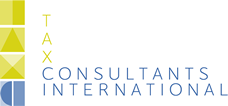Corporate Tax Services Global Mobility Services Corporate compliance Corporate Structuring International labor and cross border assignments Tax compliance
An overview of Box 2 income for non-resident taxpayers
The Box 2 income for non-resident taxpayers consists of the qualifying Dutch Box 2 income (as calculated for resident taxpayers) from Dutch companies, provided that the substantial shareholding does not belong to the equity of an enterprise.
A special definition applies for fiscal partners.
Qualifying Box 2 income is the amount of dividends and/or capital gains received (main items of income) by a non-resident taxpayer having a substantial interest (more than 5% shareholding) in a Dutch company, deducted with the losses out of a substantial shareholding.
The personal allowances and deductions (in Dutch: 'persoonsgebonden aftrek') cannot be claimed by non-resident taxpayers with Box 2 income only.
The tax deferral/ roll over facility for qualifying share mergers, legal mergers and legal de-mergers does not apply to non-resident taxpayers if the acquiring/surviving company is not a resident of the Netherlands.
The move of the tax seat of a Dutch resident corporation is considered an (taxable) alienation of the substantial shareholding.
An entity incorporated under foreign law which qualified as Dutch resident corporation for a period of at least 5 years that moved its tax seat to another state, is deemed to be a Dutch resident corporation for the subsequent period of 10 years.
If the aggregate amount of Box 2 income is negative, the income qualifies as loss from substantial shareholding for non-residents. These losses can be deducted and compensated (loss carry back or carry forward) under the same terms and conditions as those which apply to resident taxpayers. The losses may be increased with qualifying losses originating from a tax liability as resident taxpayer of the Netherlands.
Special rules apply for the determination of the taxable base in case of emigration of the taxpayer or the transfer of the tax seat of a Dutch corporation in which the taxpayer has a substantial shareholding.


.png)



